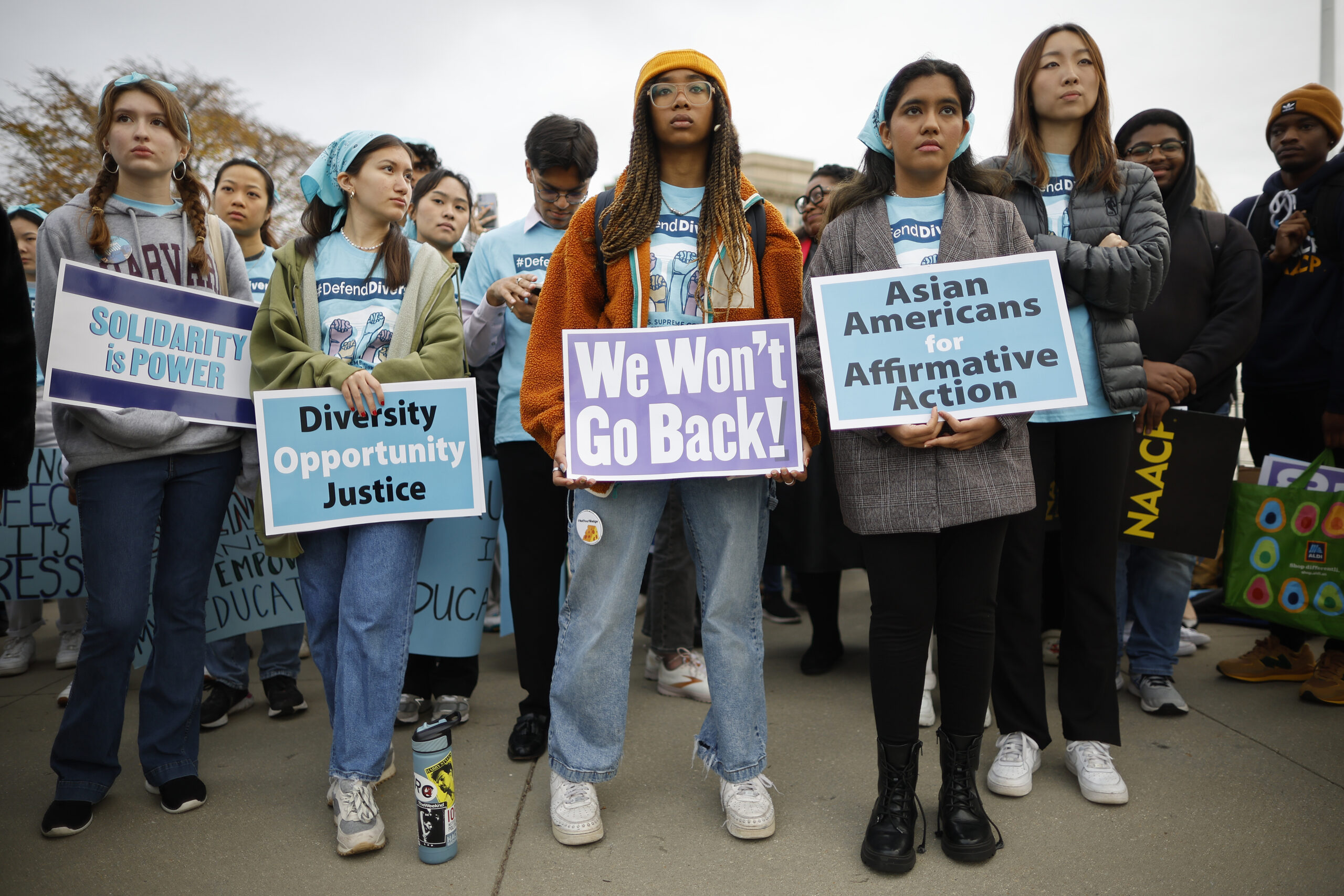With the Supreme Court widely expected to eliminate affirmative action in the coming months, San Francisco Asian American activists paid close attention to a hearing Monday in which justices heard arguments on the policies that take a person’s race into consideration for university admissions.
In 2020, California voters struck down Proposition 16, a ballot measure aimed to restore affirmative action, a rubric used in academic admissions, public employment and contracting.
Now, many predict that the conservative-majority Supreme Court justices will also toss affirmative action in what would be a landmark decision in lawsuits against Harvard University and the University of North Carolina—an outcome that worries many progressives.
Sally Chen, the education equity program manager for SF nonprofit Chinese for Affirmative Action, traveled to D.C. for a rally in front of the Supreme Court on Monday to defend affirmative action.
“Asian parents have very real concerns that need to be addressed,” Chen said.
She said the concerns from many Asian Americans, who believe that Asian students are being treated unfairly in school admissions, are very justified. But affirmative action is “part of the solution, not part of the problem.”
Chen, a Lowell High School and Harvard graduate born in Chinatown, thought affirmative action helped her to get into Harvard because her family’s Chinese immigrant background strengthened her application.
“It’s not that I check the box saying, ‘I was Chinese,’ and then, boom!—that’s a benefit or a negative,” Chen said. “It’s about why it’s important to understand me and my full [profile].”
In a Los Angeles Times op-ed, she said that if the Supreme Court bans affirmative action, she will “be among its last beneficiaries.”
Asian American Advancing Justice, another San Francisco civil rights group, issued a statement urging the court to keep affirmative action to “counter systemic racism and white supremacy” in the education system.
However, many Asian American parents aren’t persuaded and believe school admissions should focus more on academic performance and less on ethnicity.
“There are so many excellent Asian American students who deserve better opportunities,” said Sarah Shang, a founding member of the Chinese Parent Advisory Council in San Francisco. “Race-based solutions may benefit a group but ignore another group—and this is also inequality.”
Shang related the case to the Lowell High School admissions controversy, emphasizing that a student’s chances should be determined by academic performance, not skin color.
Doug Chan, a member of the San Francisco Civil Service Commission and an attorney, said affirmative action should focus more on poor students and not rely solely on race.
Asian defenders of Harvard should want to hold higher education institutions accountable to do real class-based affirmative action—not the race-based standard, Chan said. He said educators, just like law enforcement, will use “racial profiling” because it’s easy, and that class-based affirmative action is more complicated in practice.
“It’s time the U.S. got serious about lifting up those who need [affirmative action],” Chan said, “not the well-off who coincidentally are of the favored race.”
